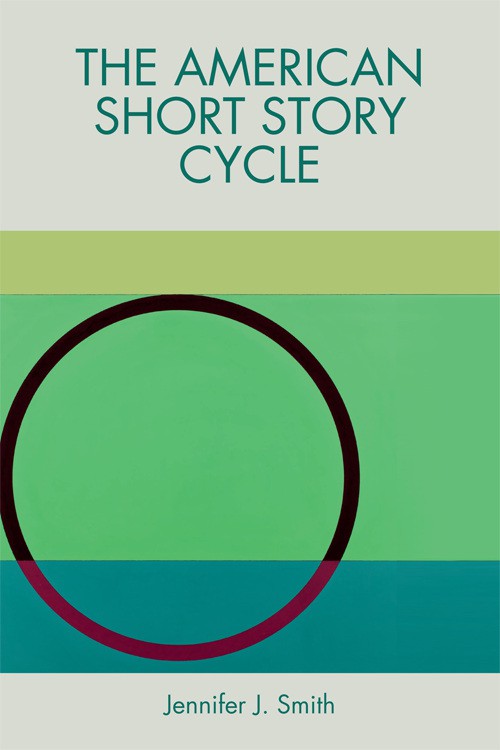
By Jennifer J. Smith
It is a truth universally acknowledged that there is so much great television. From limited streaming series to mainstays of broadcast networks, great storytelling is happening on the small screen. Episodic television tells big stories in small packages.
In this, television is very much like the subject of my new book: The American Short Story Cycle. In a short story cycle (also called a novel in stories or linked stories), each short story can be read on its own but means more when read together. You’ve probably read cycles and did not even realize it. Tim O’Brien’s The Things They Carried (1990), Ernest Hemingway’s In Our Time (1924), and Sandra Cisneros’s The House on Mango Street (1984) are all popular short story cycles. My book examines this hiding-in-plain-sight genre and argues that it has been ideal for portraying the paradox at the very heart of American cultural identity: we are one, and we are many, and it is so hard to be both.
So, if you love television as much as I do, here are six short story cycles for you:
- Fans of LOST will get hooked on Jennifer Egan’s A Visit from the Goon Squad (2010) for its dizzying and delightful treatment of contemporary culture. Like early seasons of LOST, each story focuses on a different character to create a web that holds great surprises and heartbreaks. The island that looms large in Egan’s book is a post-9/11 New York. Egan was watching The Sopranos (and reading Proust) when she was writing the book, and those influences show up in the grand scale of the cycle’s treatment of the ultimate goon: time. A bonus parallel: affectionate satires of derivative bands. LOST has Driveshaft, and Goon Squad has The Flaming Dildos.
- If you miss the loud arguments of Parenthood, check out Julia Alvarez’s How the García Girls Lost Their Accents (1991). Told from the points of view of the titular sisters, this book about a family that flees the Dominican Republic for New York is funny, boisterous, sad, and strong in ways that fans of the Bravermans will totally get.
- Jenny Perdido of Cathy Day’s The Circus in Winter (2004) is an aspiring writer and the child of an unplanned pregnancy. She’s Rory from The Gilmore Girls without the entitlement. Set in Lima, Indiana (based on the author’s hometown), The Circus in Winter is populated by the circus folk who once spent their winters there and their descendants. The quirkiness of the clown-turned-dry cleaner and the tortured acrobat rivals even Miss Patty and Kirk.
- Speaking of small towns, is there a better one than Dillon, Texas? If you are watching Friday Night Lights, you are right way where God wants you to be. The same cannot be said for the jaded Puritans and lustful ministers of Sherwood Anderson’s Winesburg, Ohio (1919). You won’t find any happy marriages like Coach and Tami’s, but you will find artists looking for a way out of a stifling small town, kindhearted teachers, and many people longing for more. You’ll miss Coach’s inspiring speeches, but you might find more honesty in the whispered confessions of the townspeople to George Willard, who could be a prototype for Matt Saracen.
- Imagine Transparent if, instead of the privileged, spoiled offspring of the Pfeffermans, you got the wild sons of a poor, young couple, and you would have Justin Torres’s We the Animals (2011). Beginning in the first-person plural and evolving to focus on one son, these flash fiction pieces bristle with a manic energy befitting the story of growing up amid a loving, violent crowd. We the Animals examines gender, sexuality, ethnic and class belonging, and family love in ways that will resonate with fans of Jill Soloway’s groundbreaking series.
- Race, poverty, and masculinity: these are just a few of the common themes between The Wire and the work of William Faulkner, whose canon functions like a short story cycle, connected by a shared setting and sprawling families across a large swath of time. The Wire brilliantly anthologizes Baltimore’s criminal justice system, often blurring what it means to be on the right side of the law. Similarly, Faulkner’s Go Down, Moses (1942), his most ambitious work in the cycle, interrogates what it is to do the right thing in response to America’s original sin, slavery.

Jennifer J. Smith is an Assistant Professor of English at Franklin College where she brings as much television into her literature classes as good sense allows.
The American Short Story Cycle is being published by Edinburgh University Press in December 2017.





